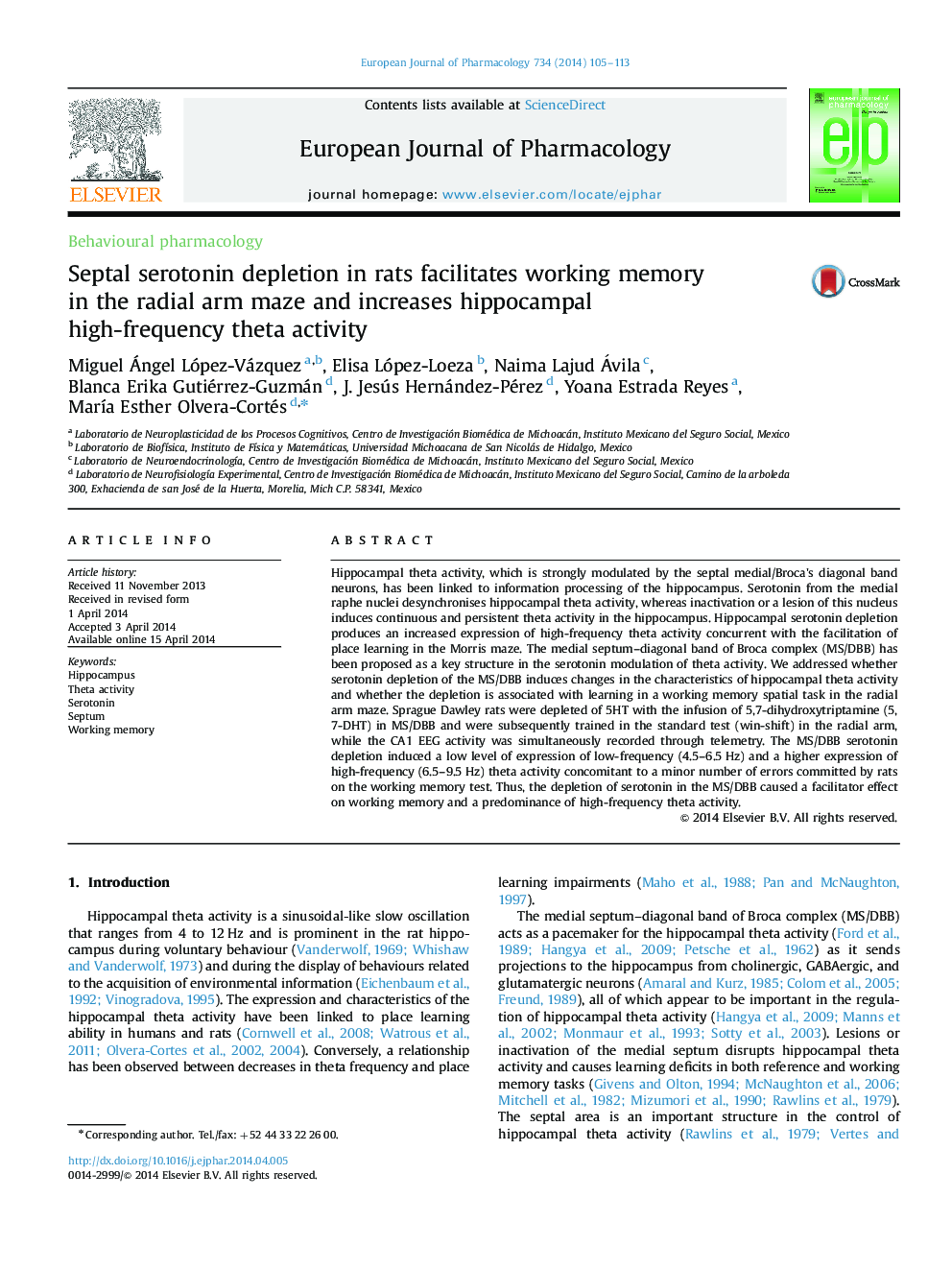| Article ID | Journal | Published Year | Pages | File Type |
|---|---|---|---|---|
| 2531764 | European Journal of Pharmacology | 2014 | 9 Pages |
Hippocampal theta activity, which is strongly modulated by the septal medial/Broca׳s diagonal band neurons, has been linked to information processing of the hippocampus. Serotonin from the medial raphe nuclei desynchronises hippocampal theta activity, whereas inactivation or a lesion of this nucleus induces continuous and persistent theta activity in the hippocampus. Hippocampal serotonin depletion produces an increased expression of high-frequency theta activity concurrent with the facilitation of place learning in the Morris maze. The medial septum–diagonal band of Broca complex (MS/DBB) has been proposed as a key structure in the serotonin modulation of theta activity. We addressed whether serotonin depletion of the MS/DBB induces changes in the characteristics of hippocampal theta activity and whether the depletion is associated with learning in a working memory spatial task in the radial arm maze. Sprague Dawley rats were depleted of 5HT with the infusion of 5,7-dihydroxytriptamine (5,7-DHT) in MS/DBB and were subsequently trained in the standard test (win-shift) in the radial arm, while the CA1 EEG activity was simultaneously recorded through telemetry. The MS/DBB serotonin depletion induced a low level of expression of low-frequency (4.5–6.5 Hz) and a higher expression of high-frequency (6.5–9.5 Hz) theta activity concomitant to a minor number of errors committed by rats on the working memory test. Thus, the depletion of serotonin in the MS/DBB caused a facilitator effect on working memory and a predominance of high-frequency theta activity.
